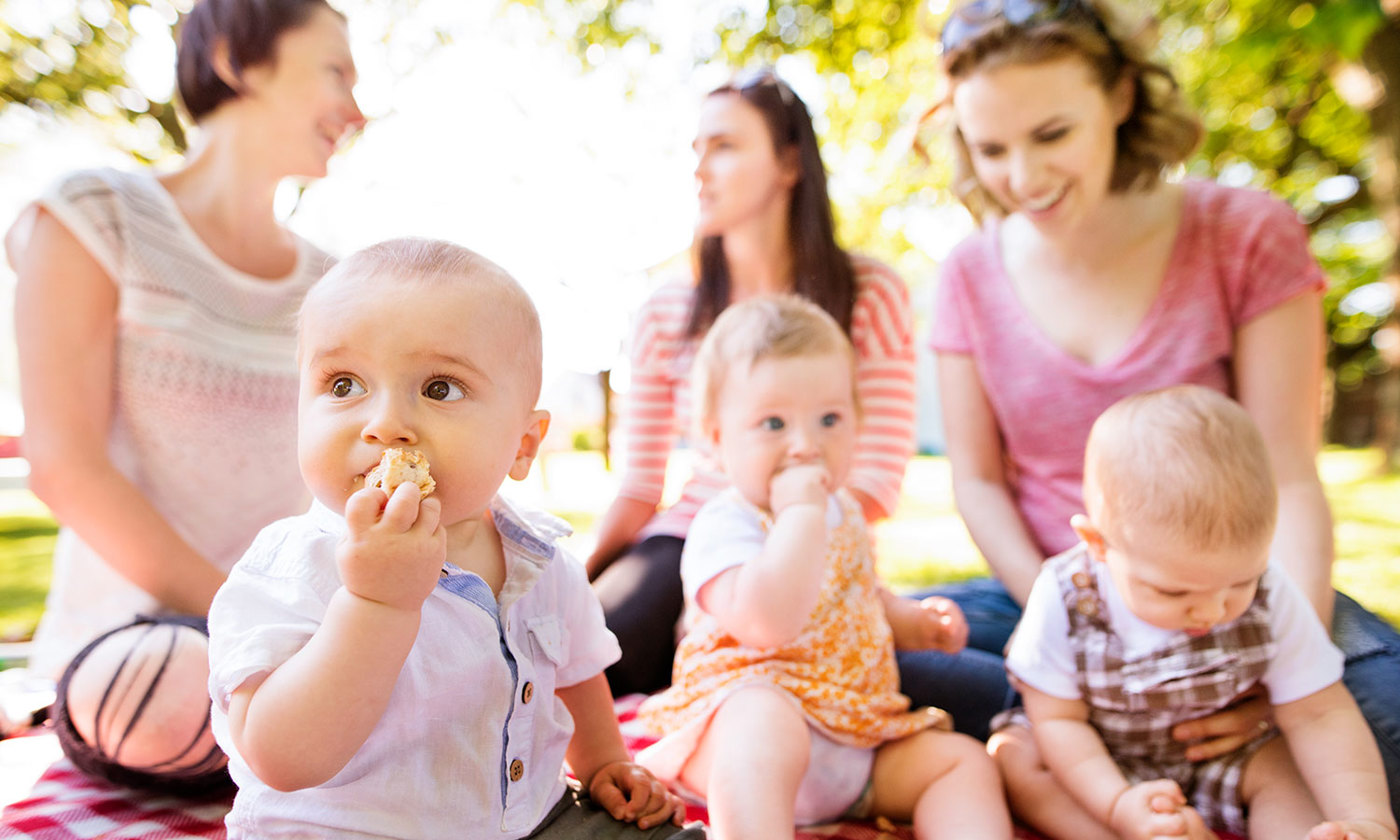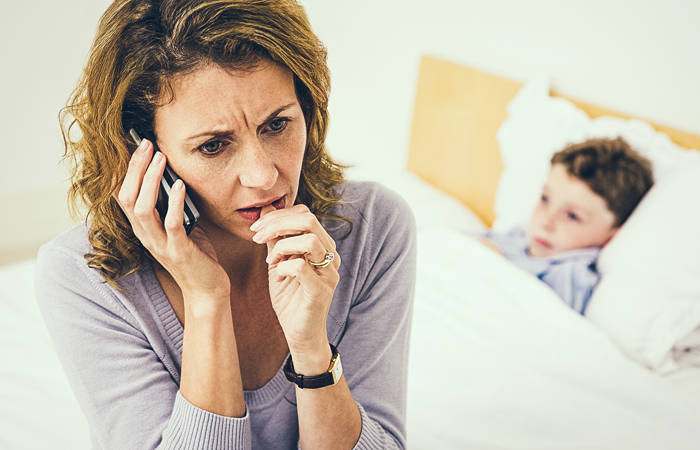Like what you see?
Sign up to receive more free parenting advice.
Thank you for subscribing to our newsletter!
Lifestyle

Credit: iStock.com/GrapeImages
For many adults, one of the surprises about becoming a parent is the degree to which others have opinions about the job we are doing.
Everyone from family members to strangers in the supermarket can seem ready with commentary about how we should parent our children.
Professor Marc de Rosnay, a Professor of Child Development at the University of Wollongong, says there’s one other critic parents should be aware of: themselves.
“It might be a scenario where you see someone looking, maybe a parent or a grandparent, and feel defensive. Sometimes part of the reason we feel defensive is because we're already critical of ourselves, so it feels like validation of something internal. It can be doubly hurtful,” he says.
Letting go of worries
Professor de Rosnay says part of the heightened internal criticism felt by many of today’s parents may be connected to their worries about helping their children get ahead in an increasingly complex and competitive world.
Many parents now expect to be actively involved in their children’s lives for decades: children may live at home well into their twenties, come to their parents to guarantee a home loan, and quite possibly return to the nest a couple of times throughout their adult life.
“This all creates an environment where we become much more attuned to our children's educational success. We can sit around and say, ‘let's give room for children to grow’ but in the back of our minds we're all thinking: ‘Gee, it's a competitive world out there in which you need to be good at something and that takes time and perseverance and determination’,” he says.
Professor de Rosnay believes parents are more scared of damaging their children than ever before.
“Of course, we need to protect children and the things that have happened recently in the spirit of protecting children are really positive. However, alongside this fear, many parents have developed a very idealistic view of childhood that is pristine and perfect.
“Parents worry that if there is a crack or if something happens the child may be damaged forever. But we need to understand that children are resilient. They can be strong, they can recover, and they can be fabulous,” says Professor de Rosnay.
Sometimes part of the reason we feel defensive is because we're already critical of ourselves, so it feels like validation of something internal. It can be doubly hurtful.Professor Marc de Rosnay
Stay up to date with the latest news and articles from First Five Years
Thank you for subscribing to our newsletter!
How can parents become less self critical?
Professor de Rosnay points out that as parents, we have control over our own thoughts.
“Yes, there are things that are bigger than us, but there are also things that we can do and we can control,” he says.
One of the ways to control critical thoughts is to remove the pressure to rush children from one extracurricular activity to the next, believing that this is what good parents ‘should’ do and that it will help them stay on track with their peers in terms of learning or skills.
“Parents need to have faith in their child's capacities and intelligence…There's a lot of focus for today’s parents to manufacture an environment that is facilitative in nature,” says Professor de Rosnay.
“So you take them to a music class or you take them to a gym class. We think if we're not doing that we're not doing the right thing, and end up worrying constantly we’re not doing the best by our child.”
Professor de Rosnay says the ideal dynamic is one where – sometimes, not all the time – the child has full control over the experience or interaction.
“That can be very difficult if you've set up a way of interacting that's very parent driven and the child is the recipient of the ‘entertainment’ or the input. It’s hard to shift that dynamic once it's established,” says Professor de Rosnay.
He recommends leaving plenty of space for experiences or interactions that are not organised for a child by their parent and are casual or informal in nature.
The parent is simply the ‘agent’ who provides an environment where the child can take what they need from an experience, learning in their own time.
How to change a dynamic
To shift a dynamic Professor de Rosnay advises parents to shift the context by creating a new experience with their child.
Perhaps that’s a regular jaunt to the bush, just to play, or a visit to an oval, with no specific purpose or goal-directed outcome.
“In that new context be different,” he says.
“It’s important to have times and spaces, fairly regularly I think, where the goal is to be together and to enjoy each other's company and to explore each other's minds. In these open spaces you can follow an idea or a conversation or an interest,” Professor de Rosnay says.
This space is not only good for a child’s sense of control, it’s also a positive way to reduce the pressure many parents feel to be ‘doing’ all the time for their child.
“In these types of interactions, we can cease questioning ‘Am I doing the right thing?’.
“Instead, we can ask ourselves: ‘Is this a good place for us to be? Is my child engaged are they and are they happy to be here?’ If so, then all I have to do is respond to them. I don't have to worry about whether I'm doing the right thing or not,” he says.







